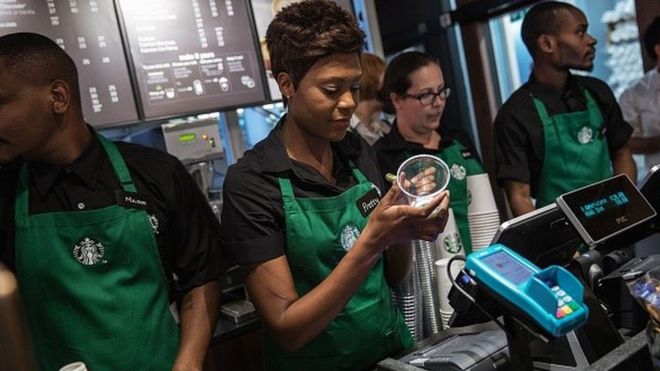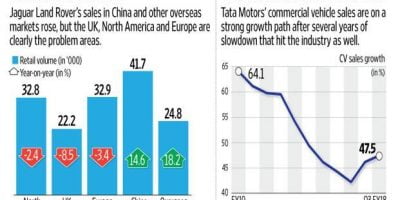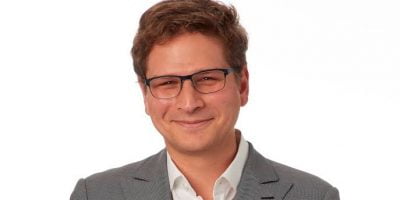
The chief executive of the Starbucks coffee chain, Howard Schultz, will step down from his post next year.
Mr Schultz will become executive chairman and will change his focus to growing new Starbucks luxury brands.
He will be replaced by the current number two, Kevin Johnson, who has been on the board for seven years.
Mr Schultz, who has been at the company for 30 years, drove much of its expansion, with the firm reporting record profits last month.
He joined in 1982, but stepped down as chief executive in 2000 before returning in 2008.
‘Headwinds’
“Starbucks consistently outperforms the retail industry because our stores, our offerings and the experiences our partners create make us a destination,” Mr Schultz said in a statement.
The 63-year old said that the firm was “ideally positioned” to continue its growth with Mr Johnson at the helm.
However, in its last set of earnings the company said it faced “ongoing economic, consumer and geopolitical headwinds”.
Mr Schultz has complained that the popularity of online shopping is keeping people at home and away from main shopping streets or malls, a point he underlined in a conference call to discuss his decision to stand down.
He is now set to work on the innovation, design and development of the more high-end Starbucks Reserve Roasteries around the world, as well as the company’s social impact initiatives.
By Michelle Fleury, New York business correspondent
Depending on where you are in the world, it’s quite possible Howard Schultz changed the way you drink coffee.
The company he runs, at least for a bit longer, needs little introduction. Starbucks has more than 25,000 stores in 75 countries.
But it wasn’t always that way. In 2008, the company fell on hard times.
Howard Schultz, who had left the company in 2000, returned and is credited with getting the company back on track. One of the things he did was to focus on the basics.
That February, Starbucks shut its 7,100 company-owned stores to retrain its staff in how to make the perfect cup of coffee.
The company lost $6m that day. But the story of the firm’s turnaround has led to some calling him the ‘Steve Jobs’ of Starbucks.
[Source:- BBC]


